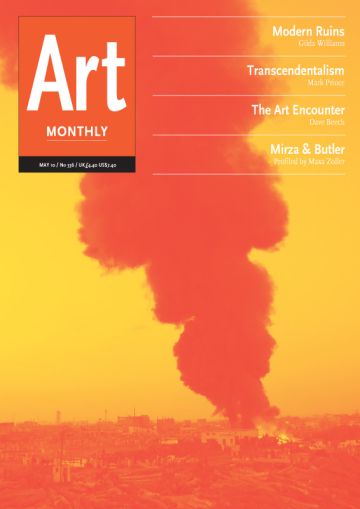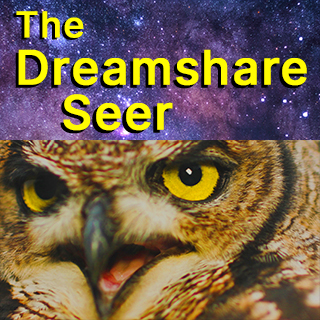Art Monthly 336
May 2010
Modern Ruins
Gilda Williams
Transcendentalism
Mark Prince
The Art Encounter
Dave Beech
Mirza & Butler
Profiled by Maxa Zoller
Buy Now – select:
Want to read this right now?
Get instant access to the entire back catalogue via Exact Editions from only £8.99!
Contents
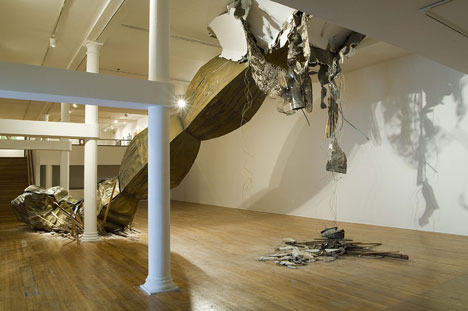
Edgar Arceneaux et al Philosophy of Time Travel 2007
Feature
It Was What It Was: Modern Ruins
Gilda Williams on the politics and aesthetics of ruins
If there is a difference between derelict buildings and ruins, could the distinction relate to the oppressive systematisation inherent in modernist architecture? And how have artists explored the difference between the two terms?
'Ever since Italian Renaissance writers fantasised about reviving the glories of Ancient Rome evidenced in their grand and broken antiquities, ruins have been put to work for politico-cultural causes.'
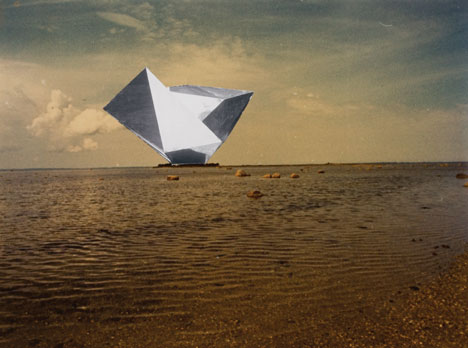
David Maljkovic Retired Form 2008
Feature
The New Transcendentalism
Mark Prince on the rejection of relativism
One of the defining factors of postmodern pluralism is its rejection of earnest credulity in favour of ironic detachment. But increasingly artists such as Richard Wright, Isa Genzken and Richard Hawkins are tackling mystical subject matter without being obviously dismissive. Does this mark the return of art that means what it says about the transcendental?
'Rather than a wholehearted affirmation of superstition or transcendental value, it is more a matter of defying the convention that relativism has become.'
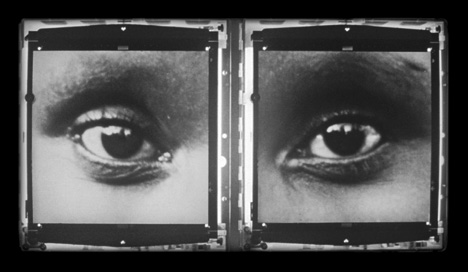
Jacques Rancière's The Emancipated Spectator book cover
Feature
Encountering Art
Dave Beech critiques Jacques Rancière's concept of the 'emancipated spectator'
Jacques Rancière's new book argues against a social experience of art and defends the role of the spectator. But is he not defending the privileged? And in this view of art's encounter, who is left out?
'Although Rancière's politics takes sides with the systemically impoverished, excluded and denigrated, when it comes to the question of cultural politics he takes sides with art's empowered subject - the spectator - rather than culture's impoverished, excluded and denigrated subject: the philistine.'
Comment
Editorial
All Washed Up
In a move trumpeted as protecting and stimulating the creative industries in the internet age, a new law effectively allows corporations to shut off online access unless individuals prove themselves innocent.
'In politics as in comedy timing is everything, especially when it comes to passing unpopular legislation. Thus it was that, in what is known as the 'wash-up' period of a parliament, fewer than 40 MPs turned up to debate the controversial Digital Economy Bill, which has now become law.'
Letters
Artist Gillian Cook responds to Colin Perry's review of the 'From Floor to Sky' exhibition at P3 in London, and Colin Perry replies.
Artnotes
Boris Johnson unveils his 'something' by Anish Kapoor; a final round of ACE Sustain grants is announced; artists and photographers sue Google; Pipilotti Rist is the world's most popular contemporary artist; galleries are launched, refurbished and closed; new studios open; and all the latest news on art world appointments, events, commissions and more.
Submissions: Send Artnotes info to artnotes@artmonthly.co.uk

Mirza & Butler The Exception and the Rule 2009
Profile
Mirza & Butler
Maxa Zoller profiles the London-based duo Karen Mirza & Brad Butler
Mirza & Butler's recent project, the Museum of Non-Participation, is an open-ended series of actions inspired by a residency in Islamabad. The project's first instance took place behind a barbershop in East London and included meetings, workshops, screenings, Urdu language courses and a special edition of a Pakistani newspaper edited by the artists.
'More event and idea than exhibition or object, the Museum of Non-Participation proposed an open relationship between artwork and audience, one that stretched beyond the control of the artists.'
Reviews
Exhibitions
Richard Hamilton: Modern Moral Matters
Serpentine Gallery, London
Mark Prince
Robert Morris
Museum Abteiberg, Mönchengladbach
Alex Coles
IRWIN: The Eye of the State
The Israel Center for Digital Art, Holon
Daniel Miller
MyWar
FACT, Liverpool
Omar Kholeif
Jenny Holzer
Baltic, Gateshead
Paul Usherwood
A History of Irritated Material
Raven Row, London
Eliza Williams
Martin Honert
Bloomberg Space, London
Coline Milliard
Jennet Thomas: All Suffering SOON TO END!
Matt's Gallery, London
David Trigg
Angela de la Cruz: After
Anna Maria Maiolino: Continuous
Camden Arts Centre, London
Klara Kemp-Welch
Art Sheffield - Life: A User's Manual
various venues, Sheffield
David Briers
Animism
MuHKA & Extra City, Antwerp
Chris Clarke
Mark Francis
Abbot Hall Kendal
Bob Dickinson
Jyll Bradley
The Exchange, Penzance
Gill Hedley
Reviews
Books
The Fall of the Studio: Artists at Work
Alex Coles on Wouter Davidts and Kim Paice's examination of the changing role of the artist's studio
'The contributors have been selected on the basis that their research heeds the editors' premise that "instead of upholding the accepted wisdom or narrative that the studio has fallen", the present task of scholarship on the studio is to "ambitiously question ... assumptions that underlie the popular and international discussion of the 'post-studio'". An obvious danger would have been to fall back on a more conservative plea for a return to the studio - something the editors avoid.'
Reviews
Film
Hannah Sawtell
Maria Walsh on the artist's contribution to Serpentine Cinema
'The baroque-style interior and intimate setting of The Gate cinema provided a fitting frame for Hannah Sawtell's Entroludes 1-6, 2010, six short films whose imagery, mainly culled from the internet, enfolds to create semi-abstract assemblages that perform in virtual space with uncanny alacrity.'
Report
Symposium
PhotoFilm: Stillness and Movement
Sophia Phoca on Tate Modern's film conference
'In the opening address Sigune Hamann explained that the event would concentrate on how we conceive and experience time and movement. This was a refreshing focus on the way the image is experienced phenomenologically, rather than the heavily trodden path of structuralist analysis of the image.'
Report
Report
What looms for the Henry Moore Institute?
Axel Lapp has his concerns about the changing focus of the Henry Moore Institute
'Even though the HMI has since done its utmost to defuse all concerns, asserting that "there are no plans to close the Institute or reduce its activities", the reality seems to tell a slightly different story.'
Artlaw
Copyright
Street Legal
Henry Lydiate on the copyright status of street art
'Does copyright law permit publicly sited artworks to be filmed or photographed, and the resulting images merchandised commercially, without the prior consent of the copyright owner of that public art?'
Listings
Exhibitions
Exhibition listings
Art Monthly's exhibition listings can also be viewed online.

